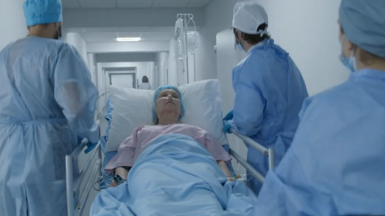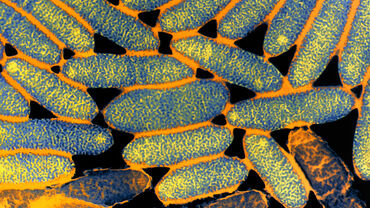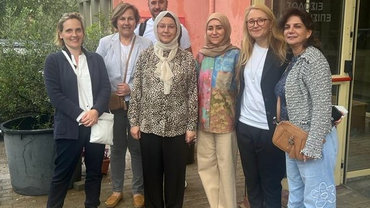Epidemiological update: Legionnaires’ disease cases associated with travel to Dubai, 8 March 2017
The ECDC surveillance scheme (ELDSNet) for travel-associated Legionnaires’ disease (TALD) [1] has observed an increase in the number of cases associated with travel to Dubai, United Arab Emirates (UAE) since the beginning of the last quarter of 2016 compared with the two previous years
Increase in travel-associated Legionnaires’ disease among European travellers returning from Dubai since 1 October 2016
The ECDC surveillance scheme (ELDSNet) for travel-associated Legionnaires’ disease (TALD) [1] has observed an increase in the number of cases associated with travel to Dubai, United Arab Emirates (UAE) since the beginning of the last quarter of 2016 compared with the two previous years (Figure 1).
The doubling of cases observed in October and November 2016 (compared with 2014 and 2015) led to an ECDC rapid risk assessment published on 23 December 2016. As cases continued to be reported in December and January, an ECDC epidemiological update was published on 17 January 2017. This second epidemiological update shows a larger number of cases reported in February 2017 than in February 2014 or 2015.
Figure 1. Distribution of TALD cases in connection with travel to Dubai (UAE) by month of onset, EU/EFTA countries, 2014-2017, as of 6 March 2017
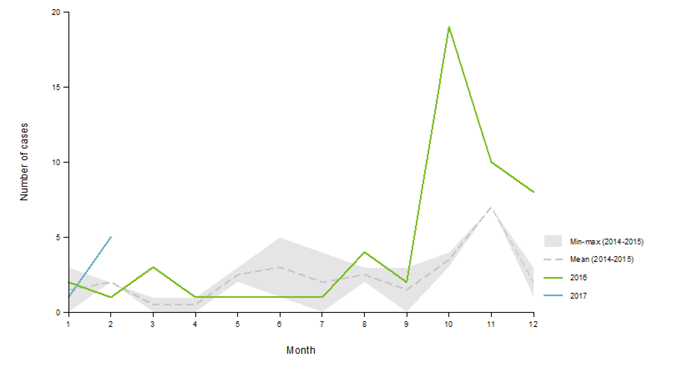
As of 6 March 2017, 44 TALD cases with a history of travel to Dubai within 2–10 days prior to illness and with onset since 1 October 2016, have been reported to ECDC by EU Member States and one European Free Trade Association (EFTA) country. Forty cases associated with commercial accommodation sites were reported through the ELDSNet TALD surveillance scheme and four cases associated with private accommodation sites in Dubai were reported by the United Kingdom (UK). Cases were reported by the United Kingdom (20 cases), Sweden (6), the Netherlands (5), France (3), Denmark (3), Germany (3), Austria (1), Belgium (1), Hungary (1) and Switzerland (1).
The delay between week of illness onset and week of reporting cases to ELDSNet is around two weeks, ranging from one to six weeks. Therefore, the number of cases reported in the past six weeks is likely to be underestimated.
Figure 2. Distribution of TALD cases with history of stay in Dubai (UAE), by week of onset and accommodation site clustering, for weeks 37/2016–07/2017
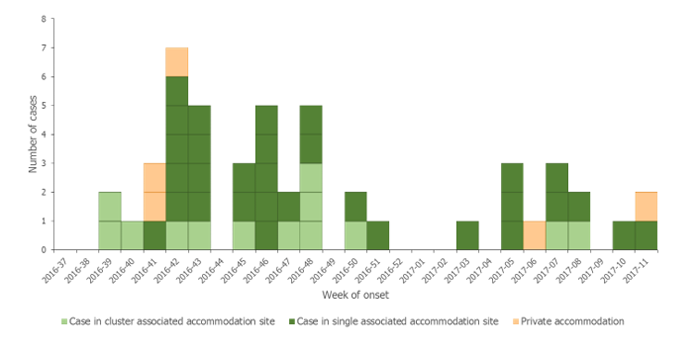
Nine of forty-four cases (20%) spent time in another location in UAE or in a country other than their home country during their incubation period. One of the notified cases is reported as a fatal case.
All cases are laboratory confirmed. Thirty-three were diagnosed with a urinary antigen test (UAT), four with PCR, four with both UAT and PCR and three by culture, UAT and PCR. Three of the cases had their infection further characterised as Legionella pneumophila serogroup 1, sequence base type 616. This type is uncommon in Europe and has been associated with other Legionnaires’ disease cases returning from Dubai in previous years (personal communication, ELDSNet network).
The UAE authorities have informed ECDC that there was no increase observed in statutory notifiable pneumonia cases in Dubai during the period October to December 2016.
Environmental investigations
Public health authorities in the UAE informed ECDC that environmental investigations were undertaken at the notified hotels and Legionella count results within the Dubai municipality showed acceptable levels for water systems (<1000 cfu/litre) [2]. The threshold of acceptability is the same as that indicated in the European technical guidelines by EWGLI [3]. No information from the UAE authorities has been provided to ECDC as to whether other environmental investigations have been carried out in Dubai.
ECDC threat assessment for the EU
The assessment outlined in the rapid risk assessment published on 23 December 2016 has not changed, since cases have continued to be reported with illness onset in recent weeks.
References
- European Centre for Disease Prevention and Control. European Legionnaires’ Disease Surveillance Network (ELDSNet) − Operating procedures. Stockholm: ECDC; 2012.
- Dubai Municipality, Public Health and Safety Department. Dated 06/2010. Guidelines for the control of Legionella in water systems.
- EWGLI technical guidelines for the investigation, control and prevention of travel-associated Legionnaires’ disease. [Accessed 11 January 2017] Available from: http://ecdc.europa.eu/sites/portal/files/media/en/healthtopics/legionnaires_disease/ELDSNet/Documents/EWGLI-Technical-Guidelines.pdf

